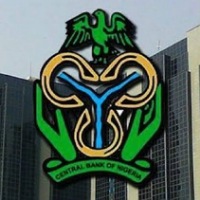Banking
UBS Agrees to Buy Back Rescue Fund for $3.8 Billion

GENEVA – UBS AG (UBSN), Switzerland’s largest bank, agreed to pay $3.8 billion to buy back the fund for toxic assets set up by the central bank in 2008 as part of a bailout.
The Swiss National Bank (SNBN) said the price corresponds to its contractual share in the fund’s equity at the end of September, according to an e-mailed statement today. Under the agreement, UBS paid the central bank $1 billion plus 50 percent of the value of the fund’s remaining assets. At the end of 2012, the SNB would have received $3.27 billion under the same formula.
The Stability Fund was established in October 2008 as part of measures to bolster UBS and the Swiss financial system. UBS spun off $38.7 billion of risky assets into the fund, while the government provided 6 billion francs ($6.5 billion) of equity and the Zurich-based SNB made a loan to support the assets as they were being run down. The government sold its investment in UBS for a profit of 1.2 billion francs.
 “At the beginning, risks were very high and we didn’t do it in order to achieve a profit out of it,” SNB President Thomas Jordan said at a briefing in Zurich today. “We conducted the Stability Fund exercise in order to guarantee the stability of the Swiss financial system.”
“At the beginning, risks were very high and we didn’t do it in order to achieve a profit out of it,” SNB President Thomas Jordan said at a briefing in Zurich today. “We conducted the Stability Fund exercise in order to guarantee the stability of the Swiss financial system.”
UBS needed state aid after the bankruptcy of Lehman Brothers Holdings Inc. froze financial markets and the lender’s mistimed bet on the U.S. housing market resulted in more than $57 billion in writedowns and losses during the subprime crisis.
Capital Buffers
“The financial success we’ve achieved shouldn’t be reason to believe that we’ll have a favorable view toward bank bailouts in future,” Jordan said. While the industry has made “big progress” on bolstering capital buffers, “we’ve emphasized that banks need to improve their leverage ratios further.”
Switzerland introduced some of the strictest capital and liquidity rules in the world, forcing its two biggest banks, UBS and Credit Suisse Group AG (CSGN), to hold capital equal to as much as 19 percent of risk-weighted assets by 2019. In June, the SNB told the two banks to boost their leverage ratios, which measure their capital against total assets, before 2019, when the largest Swiss banks will be required to have a ratio of at least 3.1 percent.
Finma ‘Add-On’
UBS said last month that exercising the option to repurchase the fund won’t have a “material” impact on its profit. The repurchase adds 2.5 billion francs to its common equity Tier 1 capital needed to meet Basel III rules, the bank said today in an internal memo to employees obtained by Bloomberg News. That will partially offset a new capital requirement imposed by Finma, Switzerland’s market supervisor.
The Finma “add-on” order issued at the end of the third quarter requires UBS to hold more capital to help absorb potential charges related to litigation and compliance matters.
The fund consisting of securities, loans and derivatives was jointly run by three members of the SNB and two from UBS, with the a central bank representative acting as chairman. A group of about 70 UBS employees managed the sale of the assets, which was originally planned over eight years.
At the end of September, a month after the final repayment paved the way for UBS to buy back the remaining assets, the fund “was left mostly with cash equivalents,” giving it a value of $6.5 billion in equity, the SNB said.
“When the market situation was good, assets were sold rapidly, while restraint was exercised when market setbacks were experienced,” the SNB said. “U.S. securities in particular recorded cash flows over the entire life of the portfolio in excess of the purchase price paid to UBS at the outset. By contrast, the situation for European assets was less favorable, since the euro debt crisis from 2010 had a negative impact on the value of these positions.”
The SNB said it has earned interest income of $1.6 billion over the term of the loan in addition to the $3.8 billion share in the equity. The purchase price will have a “favorable impact” on 2013 results, it said without providing details.
– BLOOMBERG
Banking
Millions of customers still stranded worldwide 24 hours after GT Bank online operations suffered attacks
By Yemie ADEOYE
GT Bank, one of Nigeria’s leading banks, with operations across Africa and the United kingdom, and with an asset base of about US$3.11 trillion is under a cyber attack which has left millions of its customers across the world stranded in the last 24 hours.
The bank which was renowned for its seamless online operations at inception has suffered dwindling online efficiency in recent years and this current attack didn’t come as a surprise to many of its numerous customers. However, it is becoming worrisome that over 24 hours after its online operations went down, the bank has not been able to arrest the situation and restore its online services.
Several customers of the bank took to their X (formerly known as twitter) handles to express their frustrations at the bank, as several of the customers in the diaspora are unable to access their accounts and carry on with their transactions. A customer , Jeff55 who lamented on his X handle about the development, stated that it is a thing of shock that a bank of this size couldn’t afford to have the necessary tools and experts to ensure a full protection of its online operations in this age and time.
Another customer Dimma stated that while Cybersecurity training may seem tedious, the recent #GTBank hack is a stark reminder that everyone is just a click away from a devastating attack.
Several media organisations had reported that hackers have stolen GT Bank website, and intercepted customers Data in massive phishing operation.
At the time of filing this report, Biztellers.com.ng checks on the banks website shows that it is still down and unaccessible, and neither GT Bank media and communications unit nor any of its agencies or surrogates have commented officially on the development.
Banking
Tinubu commends increased crude production to 1.61 mbpd
Says output surge buoyed by reforms he announced in May 2024 to address gaps in PIA
President Bola Ahmed Tinubu on Sunday declared a resurgence in the oil & gas industry, commending the increased crude production to 1.6 million barrels per day.
The president, who said this in a national broadcast, maintained that the resurgence was buoyed by the reforms he announced in May 2024 to address the gaps in the Petroleum Industry Act (PIA).
Nigeria’s crude oil output got a boost to 1.61 million barrels per day in July 2024 through the president’s directive and the industry leadership provided by the Nigerian National Petroleum Company Limited (NNPCL).
Acknowledging what he called a resurgence of the once-declining oil and gas industry in his Sunday-morning broadcast to the nation, President Tinubu said that oil investors are coming back to Nigeria.
He said; “Our once-declining oil and gas industry is experiencing a resurgence on the back of the reforms I announced in May 2024 to address the gaps in the Petroleum Industry Act. Last month, we increased our oil production to 1.61 million barrels per day, and our gas assets are receiving the attention they deserve. Investors are coming back, and we have already seen two Foreign Direct Investments signed of over half a billion dollars since then.
Read Also : BREAKING: Sell Crude To Dangote Refinery In Naira – Tinubu To NNPC Ltd
“Fellow Nigerians, we are a country blessed with both oil and gas resources, but we met a country that had been dependent solely on oil-based petrol, neglecting its gas resources to power the economy.
We were also using our hard-earned foreign exchange to pay for and subsidise its use. To address this, we immediately launched our Compressed Natural Gas Initiative (CNG) to power our transportation economy and bring costs down.
This will save over two trillion Naira a month, being used to import PMS and AGO and free up our resources for more investment in healthcare and education.
“To this end, we will be distributing a million kits of extremely low or no cost to commercial vehicles that transport people and goods and who currently consume 80% of the imported PMS and AGO.
“We have started the distribution of conversion kits and the setting up of conversion centres across the country in conjunction with the private sector. We believe that this CNG initiative will reduce transportation costs by approximately 60 per cent and help to curb inflation.”
Banking
FBN Holdings On Course For AGM

Plans are in top gear for the 11th Annual General Meeting (AGM) of the FBN Holdings Plc.
The management made this disclosure in a notice it filed with the Nigerian Exchange Limited (NGX) on Thursday, where it averred that it has not been served with any court order against the proposed AGM.
According to notice, which was signed by the acting Company Secretary, Adewale Arogundade, FBN Holding said, “The attention of FBN Holdings Plc (the Company) has been drawn to recent media reports purporting that the Company has received a Court Order stopping it from holding the Annual General Meeting (AGM) scheduled for August 15, 2023.
“We confirm that this assertion is a false narrative as the Company has, as at the date hereof, not been served with any court order to stop the forthcoming AGM.
“Suffice to mention that the AGM is a statutory meeting of Shareholders that must be held in accordance with the law, further to which the Company will notify the regulators and the public as appropriate if there is any lawful order to restrain the Company from conducting same.
“We hereby assure our esteemed Shareholders that the AGM shall hold on August 15, 2023, as planned and we look forward to their attendance and active participation at the meeting.”
However, court orders published in national dailies showed that the Federal High Court in Lagos had issued an order against the financial institution, barring it from holding its 11th AGM.
The order was entered pursuant to a petition by Olusegun Onagoruwa, in suit No: FHC/L/CP/1271/2022. It was addressed to the bank and some other bank officials.
It read, “Take notice that unless you obey the directives in the judicial order contained in the order made on July 15, 2022, by the Federal High Court, Lagos, by refraining from proceeding with the 11th Annual General Meeting of FBN Holdings Limited proposed for August 15, 2023, from seeking approval to issue or raise share capital in any manner whatsoever, from appointing or confirming the appointment of new directors, or in any other manner taking any step towards implementing, actualising enforcing resolution of the 10th Annual General Meeting of FBN Holdings Plc held on June 20, 2022, or in any other manner overreaching, disobeying or undermining the said order of a court, you will be guilty of contempt of court and you will be liable to be committed to prison and to there imprisoned.”
Biztellers brought you a report that a segment of shareholders had staged a protest at the headquarters of the bank on Monday, calling for the AGM to be held, as well as soliciting regulatory interventions.
It is expected that at the AGM, FHN Holdings is poised to breathe life into plans to seek shareholders’ approval to raise N150bn fresh capital via a rights issue and elect new directors including billionaire, Femi Otedola and Samson Ariyibi among other resolutions.











